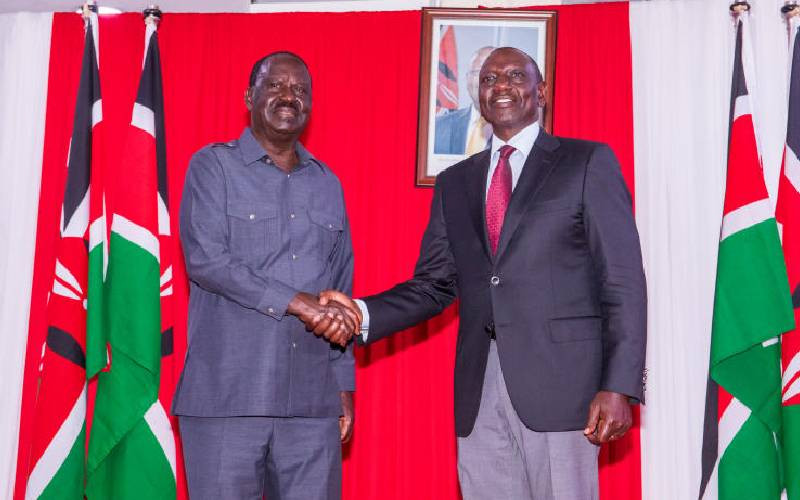

A majority of Kenyans are increasingly rejecting the concept of a broad-based government, according to a new survey by TIFA Research.
TIFA said findings raise questions about the legitimacy and political future of the informal coalition between President William Ruto and opposition leader Raila Odinga.
The survey, released as the Kenya Kwanza administration marks its third anniversary, shows that 64 per cent of Kenyans oppose the broad-based government, more than double the 29 per cent who support it.
Only seven per cent declined to give an opinion, suggesting that public sentiment on the matter is becoming more decisive.
“Although support has inched up slightly, it remains far overshadowed by those opposed, and indecision is declining as citizens become more decisive in their stance,” the report notes.
The results show a significant shift in public opinion. In a similar survey conducted in May 2025, only 29 per cent opposed the idea while 22 per cent supported it — indicating that not only has support stagnated, but opposition has surged over the past few months.
The alliance between Ruto and Raila was cemented through a public declaration of cooperation and the subsequent appointment of senior ODM figures into government positions, including Cabinet, parastatal boards, and diplomatic roles.
“This agreement effectively ‘de-fanged’ ODM’s parliamentary role as the official Opposition,” TIFA’s report stated.
The survey, conducted between August 23 and September 3, involved 2,023 randomly selected adult respondents from nine regions across Kenya: Central Rift, Coast, Lower Eastern, Mt Kenya, Nairobi, Northern, Nyanza, South Rift, and Western. Face-to-face interviews were conducted primarily in Kiswahili and English, with a margin of error of +/- 2.17 per cent.
The partnership between Ruto and Raila — once fierce rivals — was initially framed as a pan-Africanist move, especially in the context of Ruto’s backing of Raila’s bid for the AU Commission Chairmanship.
With the next general election less than two years away, the report notes that upcoming by-elections scheduled for late November could offer a preview of how these sentiments will translate at the ballot box — even though the full electoral landscape remains undefined.











![[PHOTOS] How Suluhu’s swearing in went down](/_next/image?url=https%3A%2F%2Fcdn.radioafrica.digital%2Fimage%2F2025%2F11%2F9cbad8a5-9bff-410e-b157-a335c61d6d8d.jpg&w=3840&q=100)










